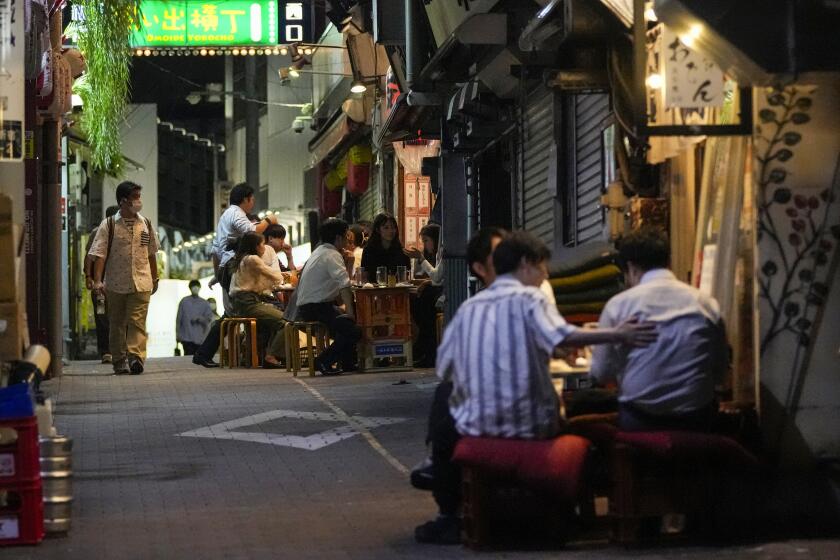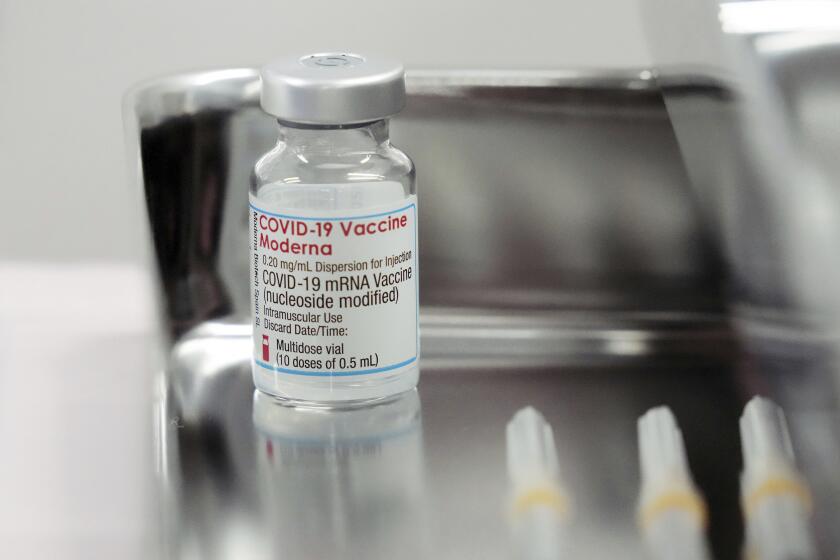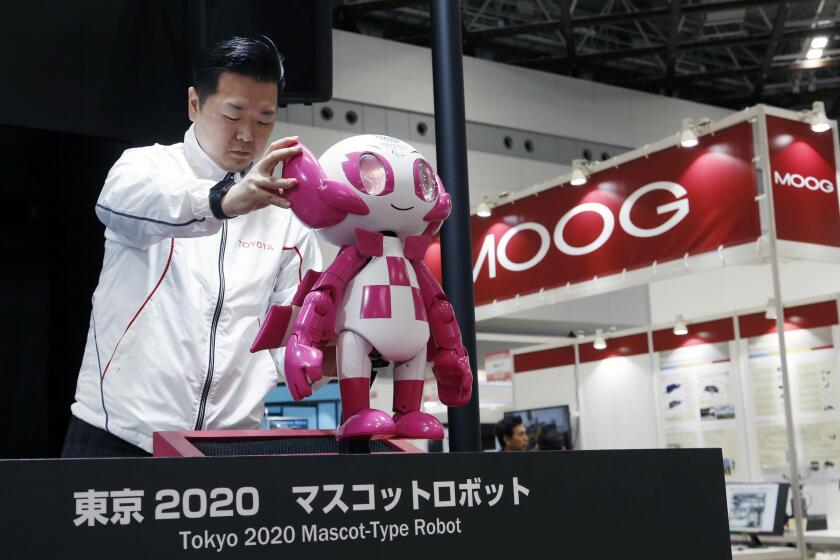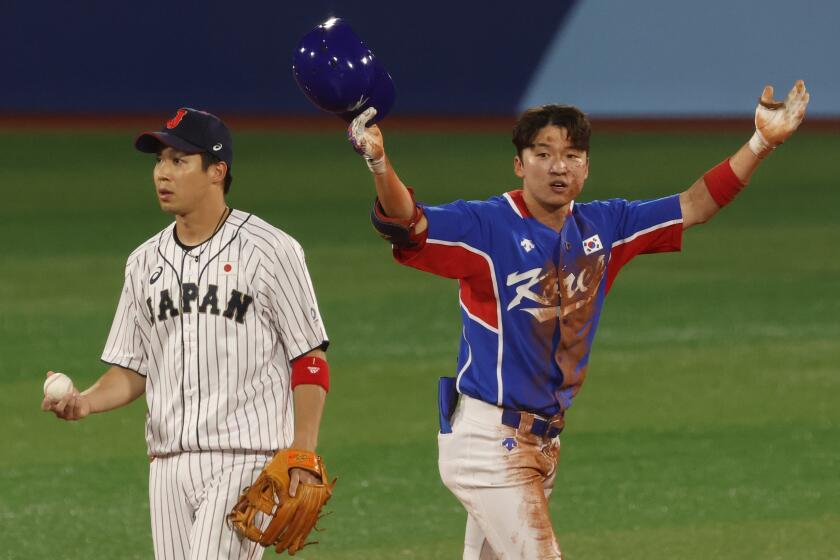Fumio Kishida, Japan’s former top diplomat, set to become prime minister
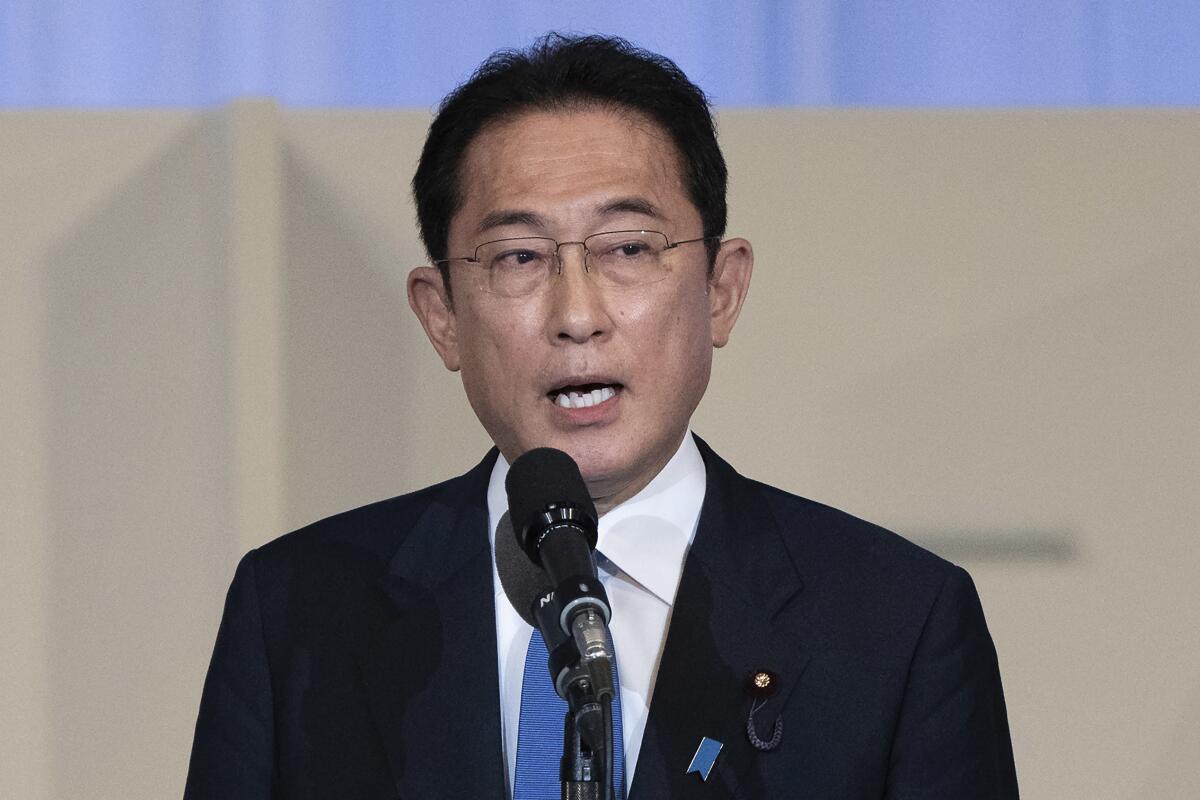
- Share via
TOKYO — Former Japanese Foreign Minister Fumio Kishida won the ruling party’s leadership contest Wednesday and is set to become the country’s next prime minister. He faces the imminent tasks of reviving a pandemic-hit economy and ensuring a strong alliance with the U.S. to counter growing regional security risks.
Kishida replaces the outgoing leader of the Liberal Democratic Party, Prime Minister Yoshihide Suga, who is stepping down after serving only one year in office.
For the record:
12:19 a.m. Sept. 29, 2021A previous photo on this story misidentified outgoing Japanese Prime Minister Yoshihide Suga as former Foreign Minister Fumio Kishida.
As the LDP’s new leader, Kishida is certain to be elected prime minister Monday in parliament, where his party and its coalition partner control both houses.
In his victory speech, he vowed to tackle Japan’s “national crises” — including COVID-19, the economy and a declining population and birthrate — while pursuing a vision of “a free and open Indo-Pacific” that counters China’s assertiveness in the region.
Kishida beat Taro Kono, the popular vaccinations minister, in the party leadership race after finishing only one vote ahead of him in the first round. None of the four candidates, who included two women, was able to win a majority in the opening ballot.
Kishida’s 257-170 landslide win in the second round was due in large part to the support of party heavyweights who saw the consensus-building ex-diplomat as a choice for stability over the change advocated by Kono, who is known as something of a maverick and a reformist.
The Japanese government says its nationwide coronavirus state of emergency will end Thursday in order to help revive the economy as infections slow.
The new party leader is now under pressure to change the LDP’s high-handed reputation, which was worsened by Suga, who angered the public over his handling of the COVID-19 pandemic and his insistence on holding the Summer Olympics in Tokyo.
The long-ruling conservative LDP needs to quickly turn around plunging public support ahead of lower-house elections that are due sometime in the next two months.
During the last year, Kishida said, he heard from many voters who complained of being ignored.
“I felt our democracy is in a crisis,” he said in his victory speech. “I, Fumio Kishida, have a special skill of listening to people. I am determined to make an effort toward making a more open LDP and a bright future for Japan together with you all.”
Japan’s suspension of 1.63 million Moderna COVID-19 vaccine doses over contamination concerns comes as the country grapples with a coronavirus surge.
The 64-year-old was once regarded as an indecisive moderate. Lately, however, he has shifted to a more hawkish security and diplomatic stance as he sought support from influential conservatives to win the party leadership and, by extension, the premiership.
Kishida has called for a further increase in Japan’s defense capability and budget, and vowed to stand up to China in tensions over self-ruled Taiwan and Beijing’s crackdown on dissent in Hong Kong.
On the economy, Kishida has called for a “new capitalism” of growth and distribution to narrow income gaps that widened under Japan’s longest-serving elected leader, former Prime Minister Shinzo Abe, and that only worsened during the pandemic.
Kishida also pledged to promote clean energy technology to turn climate change measures into growth and proposed a generous economic recovery package.
Olympic visitors will likely remember not technological advances but the reams of paper forms, glitchy apps and rigid bureaucracy of Japan’s anti-COVID measures.
“I will start a positive cycle of growth and distribution to raise people’s income, not just to benefit big companies,” he said at his first news conference as LDP president. He pledged to defend democracy, peace and stability and raise Japan’s international profile.
Little change is expected in key diplomatic and security policies under the new leader, said Yu Uchiyama, a political science professor at the University of Tokyo.
Kishida has expressed support for close Japan-U.S. security ties and for partnerships with like-minded democracies in Asia and Europe, in part to counter China’s growing influence and a threat from North Korea.
Wednesday’s vote was seen as a test of whether the party could move out of Abe’s shadow. His influence in government and party affairs has largely muzzled diverse views and shifted the party to the right. Political watchers say Kishida’s win indicates a continuation of LDP power politics led by Abe and his influential allies.
Breaking News
Get breaking news, investigations, analysis and more signature journalism from the Los Angeles Times in your inbox.
You may occasionally receive promotional content from the Los Angeles Times.
“The results showed that the LDP does not and cannot change,” said Yukio Edano, head of the largest opposition party, the Constitutional Democratic Party of Japan. “As new LDP president, Mr. Kishida should explain how his leadership is different from the Abe-Suga administrations.”
Kishida has called for party reforms by limiting terms for executive positions. But he is also seen as someone who can prolong an era of unusual political continuity amid fears that Japan could return to revolving-door leadership.
“Concern is not about individuals but stability of Japanese politics,” Michael Green, senior vice president for Asia at the Center for Strategic and International Studies, said in a briefing ahead of the vote.
Green said voters will be watching to see whether Kishida is easily swayed by power politics in his party or whether he is attuned to the public.
A Japanese Salvadoran American Angeleno columnist and a Korean American Seoulite walk into a bar in Tokyo’s K-Town during the Korea-Japan Olympic baseball game. . .
Suga is leaving only a year after taking office as a replacement for Abe, who resigned suddenly over health problems, ending his nearly eight-year premiership, the longest in Japan’s constitutional history.
Kishida lost to Suga in the 2020 party leadership race, which was determined by party heavyweights even before the vote. A third-generation politician from Hiroshima, Kishida has a reputation among his fellow lawmakers as polite and honest.
A former banker, he was first elected to parliament in 1993. An advocate of nuclear disarmament, he escorted former President Obama during his 2016 visit to Hiroshima, the city that was obliterated together with Nagasaki in U.S. atomic bombings in the closing days of World War II.
As foreign minister under Abe, Kishida struck a 2015 agreement with South Korea to resolve a dispute over the issue of women who were sexually abused by Japan’s military during World War II, part of a legacy that still bedevils relations between the two countries.
Kishida enjoys drinking sake and is a staunch supporter of his hometown professional baseball team, the Hiroshima Carp.
More to Read
Sign up for Essential California
The most important California stories and recommendations in your inbox every morning.
You may occasionally receive promotional content from the Los Angeles Times.
